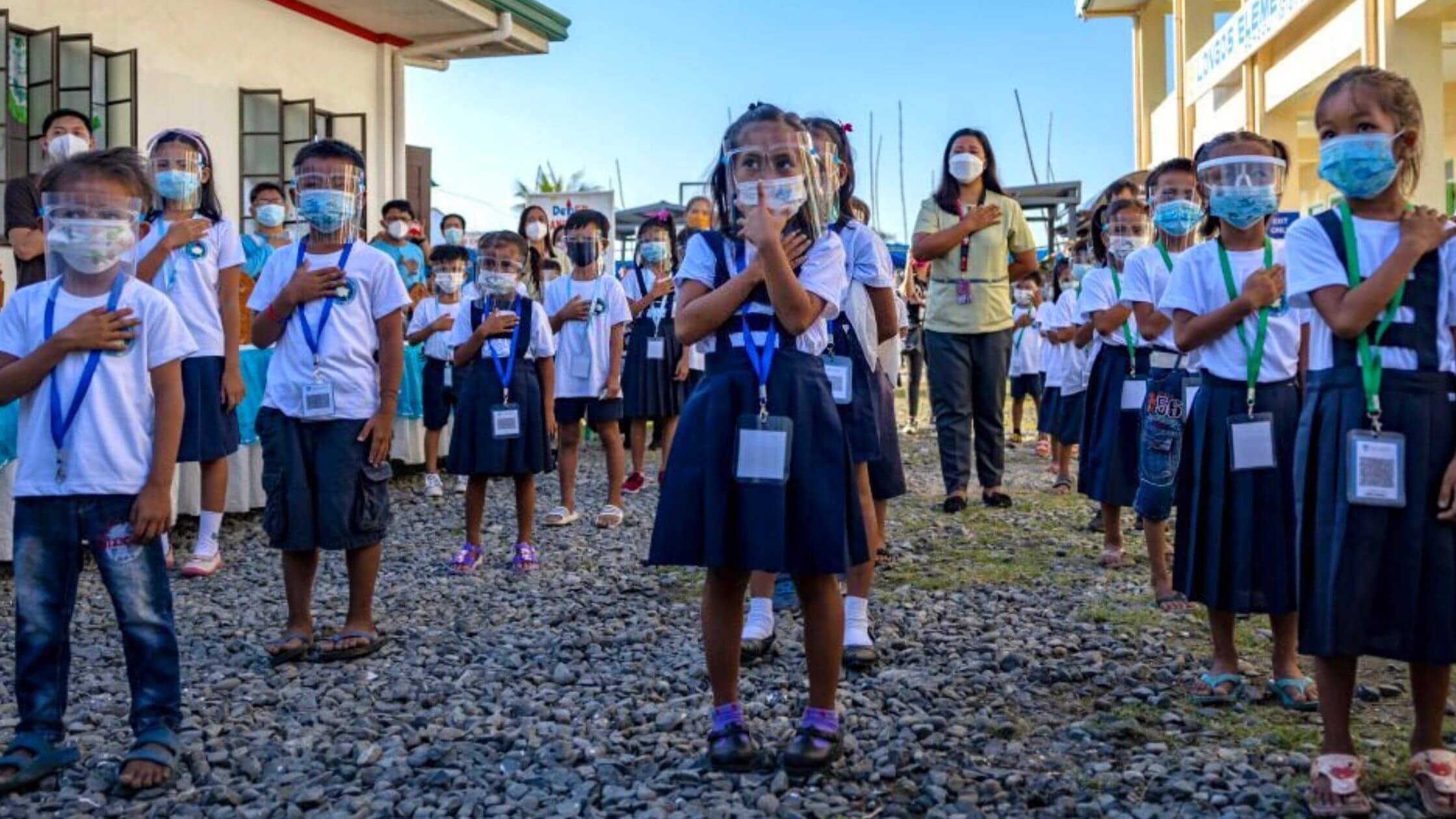Virus Lockdowns Lead To Millions Of Students Returning To Philippine Schools
Nikki Attkisson | Last Updated : August 23, 2022There has been a significant change in the operation of the world since the outbreak of the coronavirus. Despite creating the fear of life the illiteracy rates have gone up predominantly among children after the breakdown of the virus. To remedy the situation and promote the literacy rate classes have started taking place for students in various regions of the country.
Philippine: Situation After Lockdown
The Philippines was one of the countries which had the longest lockdown and school closures. The president of the Philippines, Rodrigo Duterte, insisted on a prolonged lockdown to prevent the outbreak of the Coronavirus. The literacy rates were extremely low among Filipino children even before the hit of the pandemic and the lockdown worsened the situation even more.

According to the study conducted by the World Bank, there was learning poverty in the Philippines and nine out of ten children were illiterate.
More than 425 private schools consisting of around 28000 students were closed permanently since the hit of the pandemic as heavy financial losses were incurred. Of these 28000 students, more than 10000 students were transferred to public schools.
More From Powdersville Post:
🔵Covid-19 Lockdowns May Not Have Hampered Preschool Learners
🔵Reducing Air Pollution During Lockdowns Led To Fewer Heart Attacks
Since the situation has solidified now, students of the Philippines have started attending their first in-person class after two years of struggling with the deadly coronavirus. More than 27 million students have started enrolling in the classes which has put the officials in a difficult spot as they have to tackle many problems including classroom shortages, and renovating the building of the school, especially in the country’s northern region which was damaged heavily with the storm and earthquakes.
At present, more than around 24000 public schools, averaging 46%, have started in-person classes for five days a week while the rest of the schools have a balance of both online and offline classes. The situation is expected to last till November upon which offline system of schooling will be followed all over the country.
Since there is a shortage of classrooms owing to the damage to the buildings the Department of Education has decided to implement two to three shifts to avoid overcrowding of classrooms and prevent the outbreak of the virus on the school premises.
The earthquake of July devastated the schools of the Philippines, specifically in northern Abra and the damages caused by it were so powerful. To remedy the situation, temporary learning spaces were constructed to replace the school buildings that were shattered in and around the province of Northern Abra.
Protective measures are taken by the teachers to prevent the spreading of the virus among students. Before letting the students inside the classroom the teachers are checking their temperature and spray alcohol on their hands every single day. Teachers ensure students wear their face masks all the time.
Special allowances for public school teachers have been called for to provide them with additional grocery, transportation facilities, and other such medical allowances. The motto behind this is to avoid situations that lead to missing classrooms and empty chairs and tables. When the public school teachers’ basic necessities are being taken care of the welfare of the students will automatically be ensured.
According to UNICEF, prolonged school closures combined with income shocks owing to lockdowns and poor health of individuals have the biggest impact on learning poverty. This further leads to a generation of children who are unable to read and understand a simple piece of text beyond the age of ten.
The children of today are the future of tomorrow and learning about poverty among them affects the nation as a whole. The Government of the Philippines along with the Department of Education has started taking adequate measures to ensure the students are getting the appropriate education and taken steps to improve the literacy rate of their entire nation.
References:
🔵Mayoclinic(1998-2022)Safety tips for attending school during COVID-19(Available Online): https://www.mayoclinic.org/diseases-conditions/coronavirus/in-depth/returning-safely-to-school-covid-19/art-20490441
With over 15 years as a practicing journalist, Nikki Attkisson found herself at Powdersville Post now after working at several other publications. She is an award-winning journalist with an entrepreneurial spirit and worked as a journalist covering technology, innovation, environmental issues, politics, health etc. Nikki Attkisson has also worked on product development, content strategy, and editorial management for numerous media companies. She began her career at local news stations and worked as a reporter in national newspapers.